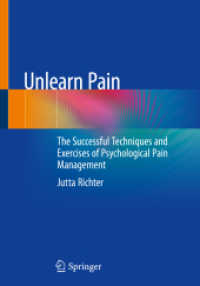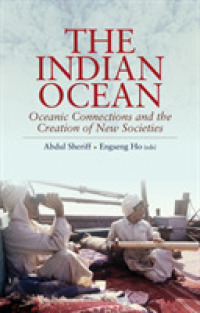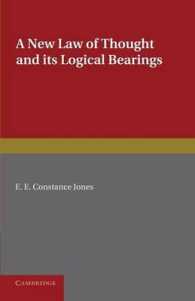- ホーム
- > 洋書
- > 英文書
- > Politics / International Relations
Full Description
A valuable resource for scholars, policymakers, and those interested in future of Asia-Europe relations, this book is a novel resource for researchers in political science and international relations, sustainability studies, sociocultural studies, and all areas relating to Asian and European regionalism.








